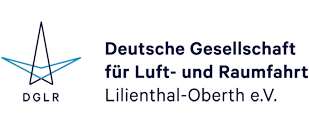DGLR-Publikationsdatenbank - Detailansicht
Autor(en):
E. Schuster, M. Uijt de Haag
Zusammenfassung:
Undoubtedly, the flight of a complex aircraft between two locations is associated with a significant engine fuel consumption leading to a likewise significant as well as complex environmental burden. With improved understanding of the environmental impact of flights from extensive research, the present work utilises a validated model for the main engines fuel consumption applicable to Boeing 777's using the GE90-110 engine base. Methodologically, the engine fuel consumption model used in this paper incorporates EUROCONTROL's widely accepted BEAM model, which is overarched by, e.g., an incorporated complex weather model. It uses a MERRA-2 product harmonised with METAR information per flight trajectory-relevant airport. This information as well as information from other submodels is passed into an emission evaluation model that relies on Boeing's Fuel Flow Method 2. Applying the approaches, the authors examine the corresponding emission substances for the provided flight trajectories over an eight month period starting at the beginning of the year of the Ukrainian-Russian conflict, 2022. For a more detailed knowledge and understanding, the findings are compared with the corresponding reference period in 2019 (as pre-Covid-19 basis). Although fairly low resolved, the trajectories for the respective time intervals were aggregated through Flightradar24, which utilises a filtered combination of position determination through ADS-B, radar, and multilateration information. The rationale for using this data is based on the relatively easy access of the data compared to actual Flight Data Recorder reports. In total, for both years 276,536 original flight events of different quality are provided, which implies the need for flight event recombination if the flight event is of a cross-day character. Thus, the day-wise recombination for the individual year 2019 and 2022 left 97,083 and 131,952 for further evaluation. Additionally, not all the supplied Flightradar24 data can be used in above-mentioned models due to data integrity problems. Therefore, the provided trajectories are screened for three error types: (A) a range check, (B) a data gap check, and (C) trajectory completeness. After recombination and data cleaning, The aggregated results show a significant increase in aircraft movements in the year 2022 by 37.04% that lead to well above 9.5mio.t of carbon dioxide emitted. Thus, a significant contribution to increase the aviation-imposed environmental burden is ascertained. Therefore, a multilayered flight event deduction was performed to identify the trajectories that penetrate the focal airspaces of Ukraine and Russia. These analyses have determined the influence of the flight numbers, routes, and individual operators. Subsequently, the more and less restrictionaffected operators have been identified. An airline from Far East Asia experiences the most striking year-to-year changes introduced by the airspace bans resulting in a notable emission of primary and secondary constituents. Finally, the prominent effort-added for German B777 operators has been quantified.
Veranstaltung:
Deutscher Luft- und Raumfahrtkongress 2023, Stuttgart
Verlag, Ort:
Deutsche Gesellschaft für Luft- und Raumfahrt - Lilienthal-Oberth e.V., Bonn, 2024
Medientyp:
Conference Paper
Sprache:
englisch
Format:
21,0 x 29,7 cm, 24 Seiten
URN:
urn:nbn:de:101:1-2024020716084927006518
DOI:
10.25967/610082
Stichworte zum Inhalt:
Environmental Burden, Trajectory Analysis, Engine Fuel Consumption, Ukrainian-Russian Conflict
Verfügbarkeit:
Kommentar:
Zitierform:
Schuster, E.; Uijt de Haag, M. (2024): Side Effects of the Ukraine Invasion: The Environmental Influence of the Bypass of Ukraine and Russia on Global Aviation Utilizing the Boeing 777 Fleet. Deutsche Gesellschaft für Luft- und Raumfahrt - Lilienthal-Oberth e.V.. (Text). https://doi.org/10.25967/610082. urn:nbn:de:101:1-2024020716084927006518.
Veröffentlicht am:
07.02.2024
